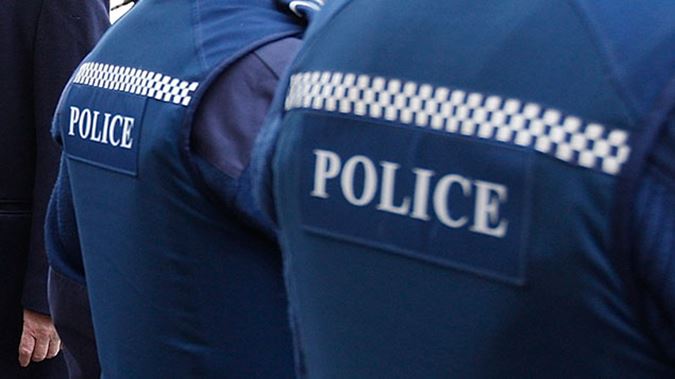OKLAHOMA CITY (AP) — Flashing lights pierced the black of night, and the big white letters made clear it was the police. The woman pulled over was a daycare worker in her 50s headed home after playing dominoes with friends. She felt she had nothing to hide, so when the Oklahoma City officer accused her of erratic driving, she did as directed.
She would later tell a judge she was splayed outside the patrol car for a pat-down, made to lift her shirt to prove she wasn’t hiding anything, then to pull down her pants when the officer still wasn’t convinced. He shined his flashlight between her legs, she said, then ordered her to sit in the squad car and face him as he towered above. His gun in sight, she said she pleaded “No, sir” as he unzipped his fly and exposed himself with a hurried directive.
“Come on,” the woman, identified in police reports as J.L., said she was told before she began giving him oral sex. “I don’t have all night.”
The accusations are undoubtedly jolting, and yet they reflect a betrayal of the badge that has been repeated time and again across the country.
In a yearlong investigation of sexual misconduct by U.S. law enforcement, The Associated Press uncovered about 1,000 officers who lost their badges in a six-year period for rape, sodomy and other sexual assault; sex crimes that included possession of child pornography; or sexual misconduct such as propositioning citizens or having consensual but prohibited on-duty intercourse.
The number is unquestionably an undercount because it represents only those officers whose licenses to work in law enforcement were revoked, and not all states take such action. California and New York — with several of the nation’s largest law enforcement agencies — offered no records because they have no statewide system to decertify officers for misconduct. And even among states that provided records, some reported no officers removed for sexual misdeeds even though cases were identified via news stories or court records.
“It’s happening probably in every law enforcement agency across the country,” said Chief Bernadette DiPino of the Sarasota Police Department in Florida, who helped study the problem for the International Association of Chiefs of Police. “It’s so underreported and people are scared that if they call and complain about a police officer, they think every other police officer is going to be then out to get them.”
Even as cases around the country have sparked a national conversation about excessive force by police, sexual misconduct by officers has largely escaped widespread notice due to a patchwork of laws, piecemeal reporting and victims frequently reluctant to come forward because of their vulnerabilities — they often are young, poor, struggling with addiction or plagued by their own checkered pasts.
In interviews, lawyers and even police chiefs told the AP that some departments also stay quiet about improprieties to limit liability, allowing bad officers to quietly resign, keep their certification and sometimes jump to other jobs.
The officers involved in such wrongdoing represent a tiny fraction of the hundreds of thousands whose jobs are to serve and protect. But their actions have an outsized impact — miring departments in litigation that leads to costly settlements, crippling relationships with an already wary public and scarring victims with a special brand of fear.
“My God,” J.L. said she thought as she eyed the officer’s holstered gun, “he’s going to kill me.”
The AP does not name alleged victims of sexual assault without their consent, and J.L. declined to be interviewed. She was let go after the traffic stop without any charges. She reported her accusations immediately, but it was months before the investigation was done and the breadth of the allegations known.
She is one of 13 women who say they were victimized by the officer, a former college football standout named Daniel Holtzclaw. The fired cop, 28, has pleaded not guilty to a host of charges, and his family posted online that “the truth of his innocence will be shown in court.” Each of his accusers is expected to testify in the trial that begins Monday, including one who was 17 when she said the officer pulled down her pink cotton shorts and raped her on her mother’s front porch.
But on a June night last year, it was J.L.’s story that unleashed a larger search for clues.
A nurse swabbed her mouth. A captain made a report. And a detective got to work.
On a checkerboard of sessions on everything from electronic surveillance to speed enforcement, police chiefs who gathered for an annual meeting in 2007 saw a discussion on sex offenses by officers added to the agenda. More than 70 chiefs packed into a room, and when asked if they had dealt with an officer accused of sexual misdeeds, nearly every attendee raised a hand. A task force was formed and federal dollars were pumped into training.
Source: The Grio











































































































































































































































![[Video] Chicago Police Officers Caught On Video Telling Two Black Men "We Kill Mother F**kers"](https://earhustle411.com/wp-content/uploads/2018/07/evil-cop-3-300x180.jpg)
![[Video] Chicago Police Officers Caught On Video Telling Two Black Men "We Kill Mother F**kers"](https://earhustle411.com/wp-content/uploads/2018/07/evil-cop-3-80x80.jpg)












![[Video] White Woman Calls The Cops On Black Real Estate Investor, Cops Threaten To Arrest Her For Harassing Him](https://earhustle411.com/wp-content/uploads/2018/05/nosy-neighbor-300x180.png)
![[Video] White Woman Calls The Cops On Black Real Estate Investor, Cops Threaten To Arrest Her For Harassing Him](https://earhustle411.com/wp-content/uploads/2018/05/nosy-neighbor-80x80.png)


![White Scientist Says The Black Community Is Being Targeted By The Medical System, They Are Deliberatly Being Poisoned [Video]](https://earhustle411.com/wp-content/uploads/2016/05/mike-adams-300x180.jpg)
![White Scientist Says The Black Community Is Being Targeted By The Medical System, They Are Deliberatly Being Poisoned [Video]](https://earhustle411.com/wp-content/uploads/2016/05/mike-adams-80x80.jpg)








![Teenage Girl Shot In Her Stomach Three Times But Took Time To Post To Facebook [ Video]](https://earhustle411.com/wp-content/uploads/2016/02/Gangster-chick-300x180.jpg)
![Teenage Girl Shot In Her Stomach Three Times But Took Time To Post To Facebook [ Video]](https://earhustle411.com/wp-content/uploads/2016/02/Gangster-chick-80x80.jpg)







